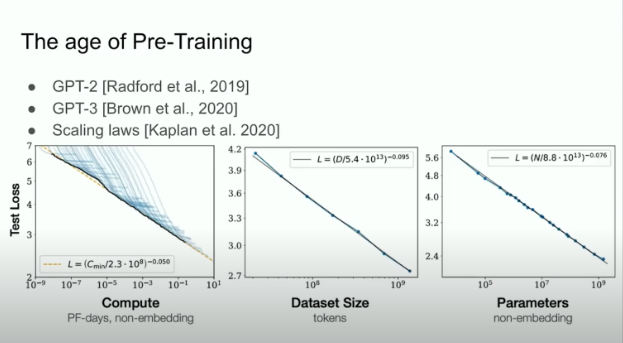OpenAI co-founder Ilya Sutskever recently stated that AI researchers must find new ways to expand machine intelligence in order to overcome existing limitations.

Discover Popular AI-MCP Services - Find Your Perfect Match Instantly
Easy MCP Client Integration - Access Powerful AI Capabilities
Master MCP Usage - From Beginner to Expert
Top MCP Service Performance Rankings - Find Your Best Choice
Publish & Promote Your MCP Services
OpenAI co-founder Ilya Sutskever recently stated that AI researchers must find new ways to expand machine intelligence in order to overcome existing limitations.

Welcome to the [AI Daily] column! This is your daily guide to exploring the world of artificial intelligence. Every day, we present you with hot topics in the AI field, focusing on developers, helping you understand technical trends, and learning about innovative AI product applications.

NVIDIA and Stanford University jointly released the general game AI agent NitroGen, trained on over 1000 games and 40,000 hours of data, featuring strong cross-game generalization capabilities. The research team will open-source the dataset and model weights, promoting global AI and game research development.

The Information Age emerged due to the miniaturization of computers and the widespread adoption of the World Wide Web, but the rise of artificial intelligence marks its end. A PayPal executive stated that we have moved into a new phase from the Information Age, and AI is reshaping the technological landscape.

According to MIIT data, the total volume of telecommunications services is expected to grow by about 9%, software business revenue is expected to grow by about 12%, and digital industry revenue is expected to grow by about 9%, reflecting the strong momentum of China's digital economy development and the enhanced resilience of the industrial chain and supply chain.

On Christmas Day, edge AI startup Liquid AI released the open-source model LFM2-2.6B-Exp, which has only 2.6 billion parameters but performed exceptionally well in multiple benchmark tests. Its instruction-following capability even surpassed DeepSeek R1-0528 with hundreds of billions of parameters, earning it the title "the strongest 3B model." The model is based on the second-generation LFM2 foundation model and achieved experimental breakthroughs through pure reinforcement learning.

The Samsung Calendar app introduces AI features through the One UI 8.5 update, automatically generating matching visual backgrounds based on the event title to enhance the user experience.

Xiaohongshu and Fudan University jointly released the new AI art technology InstanceAssemble, solving the 'difficulty in AI art composition' problem, achieving precise image generation from simple to complex scenarios. The related paper has been accepted by the top conference NeurIPS2025.

China achieves breakthroughs in integrated circuits and AI, with over 700 devices using HarmonyOS, generative AI models approved, and embodied intelligence advancing, accelerating the shift to a tech powerhouse and core technology self-reliance.....

The 2026 Beijing Yizhuang Humanoid Robot Half Marathon on April 19 features a 'human-robot co-run' format, with separate lanes for competitors. It evaluates robot autonomy, human-like gait, and endurance through autonomous navigation and remote-control categories, incentivizing full autonomy. A 'Baturu' challenge simulating emergency rescue will also be held.....

Recent study shows short training significantly improves ability to detect AI-generated faces, with participants' accuracy notably increasing after practice with StyleGAN3 images.....

FaceWall AI secures hundreds of millions in funding to advance edge-efficient large model R&D and ecosystem development, reinforcing its leadership in edge intelligence. As a pioneer in China's edge-side large models, the company has established a technology loop from theory to product, with its MiniCPM series excelling.....